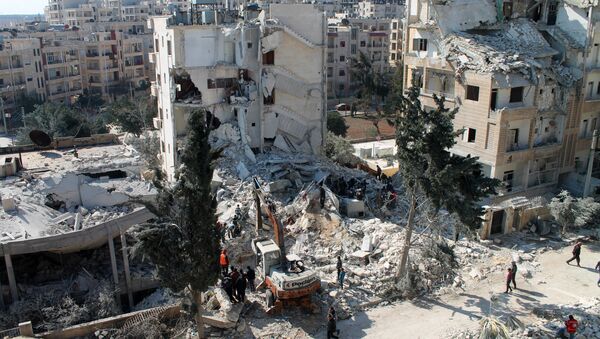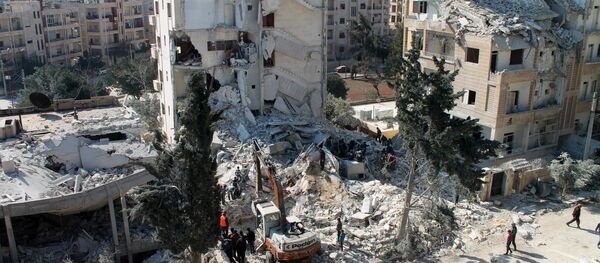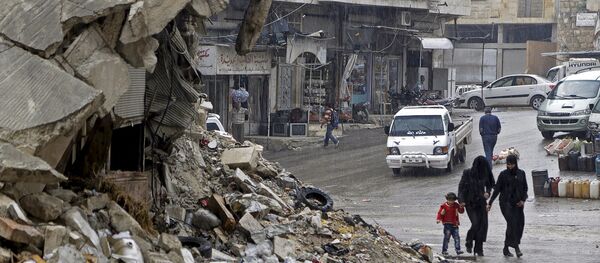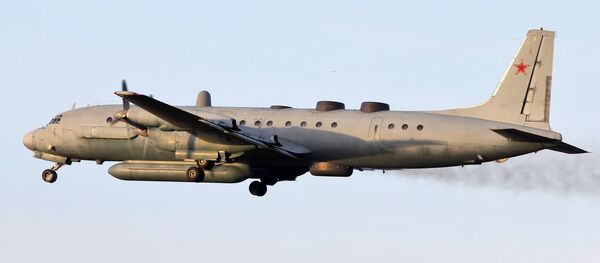Russian President Vladimir Putin and his Turkish counterpart Recep Tayyip Erdogan during a meeting in Sochi earlier this week signed an agreement to establish a 9-12 mile demilitarized zone in Idlib along the contact line by October 15.
CHEMICAL ATTACK SPOILER
On Thursday, Russian Foreign Ministry spokeswoman Maria Zakharova said during a weekly briefing that terrorists in Syria are continuing preparations for a staged provocation with the use of chemical weapons in Idlib province.
The United States, Britain and France, for their part, have threatened to launch airstrikes against the Syrian government if there is any use of chemical weapons. The US military has reportedly already created a list of potential sites in Syria to strike in the event of another campaign.
California State University Chico Professor Emeritus of Political Science Beau Grosscup told Sputnik that there are already clear indications that the United States and Israel expected another alleged chemical attack to be blamed on Syria as an excuse to attack Damascus.
"The problem is, at the same time this [demilitarized zone] agreement is being worked out, the US is threatening another escalation 'should [Syrian President Bashar] Assad launch another chemical attack,'… a signal to rebels to use chemicals again to justify US airstrikes," Grosscup said.
Grosscup also pointed out that the United States is sending more Marines into Syria for so-called training while the UK has been showing signs of increased involvement. Meanwhile Israel, which also wanted to topple Assad, was already attacking Syrian targets in efforts to provoke a wider war, Grosscup observed.
Putin and Erdogan had agreed to set up the new security zone to protect as many civilians as possible who were still being held hostage by the US-backed Islamist forces holding Idlib, Grosscup explained. The creation of the new zone was an effort to avoid large-scale civilian casualties and prevent refugees from pouring into Turkey, he added.
The Idlib initiative also enhances the diplomatic position of Russia as a humanitarian actor, Grosscup said.
And, even if the plan failed, it would give the Syrian government the excuse to end the conflict on its own terms via military victory, he said.
The Syrian government has regained control over vast territories of the country, which used to be seized by terrorists, and is now focused on creating favorable conditions for repatriating refugees, restoring infrastructure, and eliminating the insurgents that still remain active in the Idlib de-escalation zone.
Moscow hopes that the establishment of a demilitarized zone in the Syrian province of Idlib will help separate the moderate opposition and militants, Zakharova told reporters earlier on Thursday.
Yet there is a concern that the agreement could also provide an opportunity for Turkey and Russia to broadly target their opponents, according to at least one analyst.
"It will be a step forward if Russia, Turkey, and the Syrian government honor the spirit of the agreement and don’t label non-extremist opposition groups as radical and exterminate them," he said.
Turkey, Eland warned, could also label Syrian Kurdish forces as radical and go after them. "So it seems to hinge on what the definition of ‘radical’ is," Eland argued.
Eland added, however, that the plan also reflected the growing strategic and diplomatic strength of both Russia and Syria in the region.




